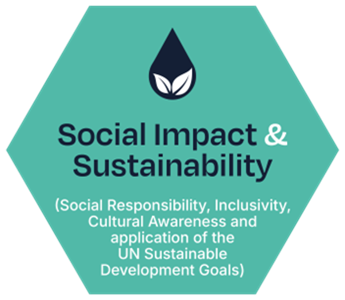.jpg)
Sustainability in Education
Our students play a vital role in fostering a sustainable and socially just society. They are encouraged to prioritise ethics, diversity, and sustainability, while consistently acting with integrity. By doing so, they demonstrate both personal and social responsibility, contributing to our collective efforts towards a better future.
Please see the Wrexham University Skills Framework Graphic and the Social Impact and Sustainability element below which integrates all courses for more information.

Content Accordions
-
Courses with a sustainable focus
- Animal Behaviour, Welfare & Conservation Science
- Introduction to climate change
- Introduction to sustainability in business
- Applied Animal Behaviour, Welfare & Conservation
- Low Carbon Energy, Efficiency & Sustainability (Degree Apprenticeship)
- Renewable & Sustainable Engineering
-
Active Learning Framework
The University’s active learning framework (ALF) aims to make best use of on-campus learning spaces with student focussed online learning content which can be accessed anytime. Wrexham University Academic Regulations require that all work is submitted electronically. These approaches minimise the use of resources including paper and printing for student work.



